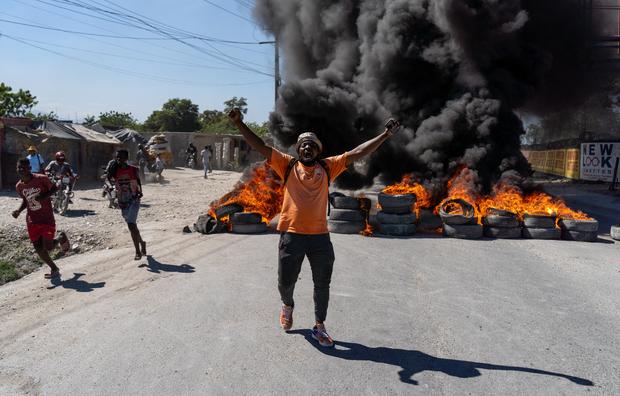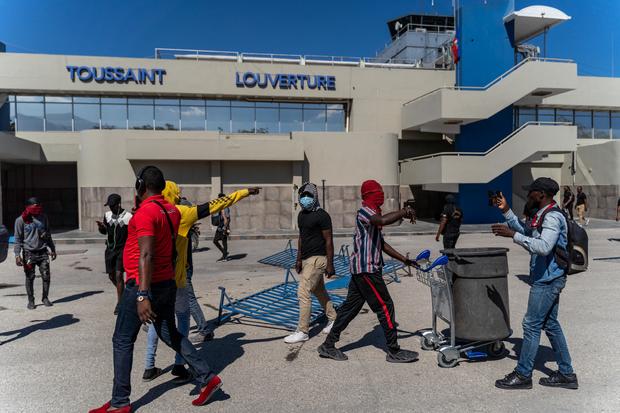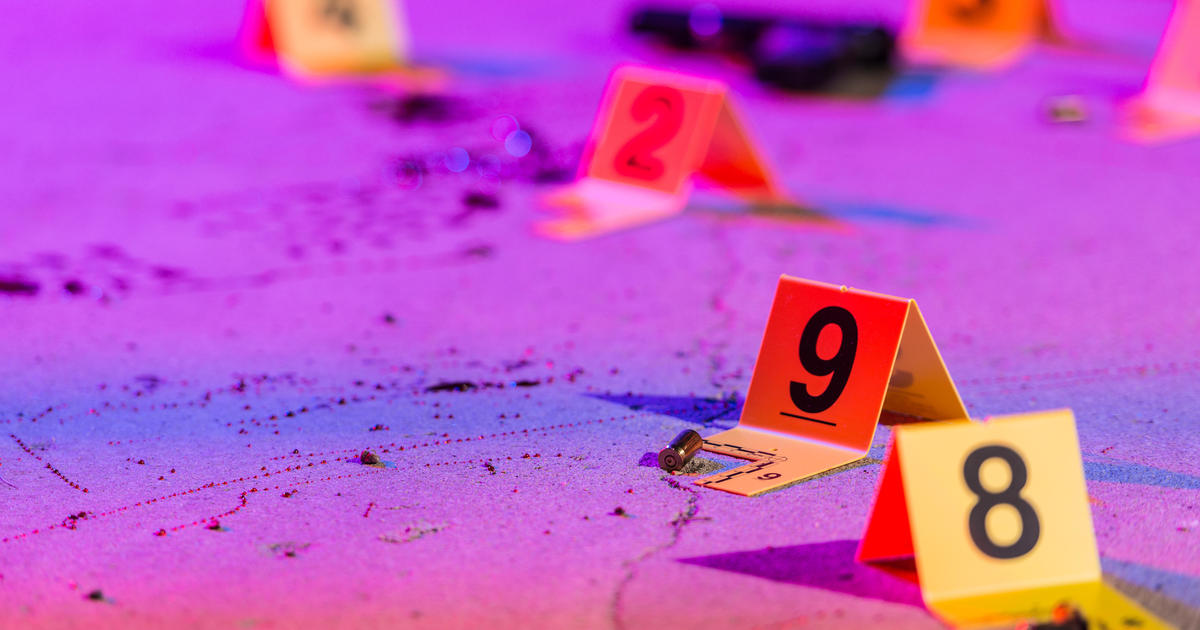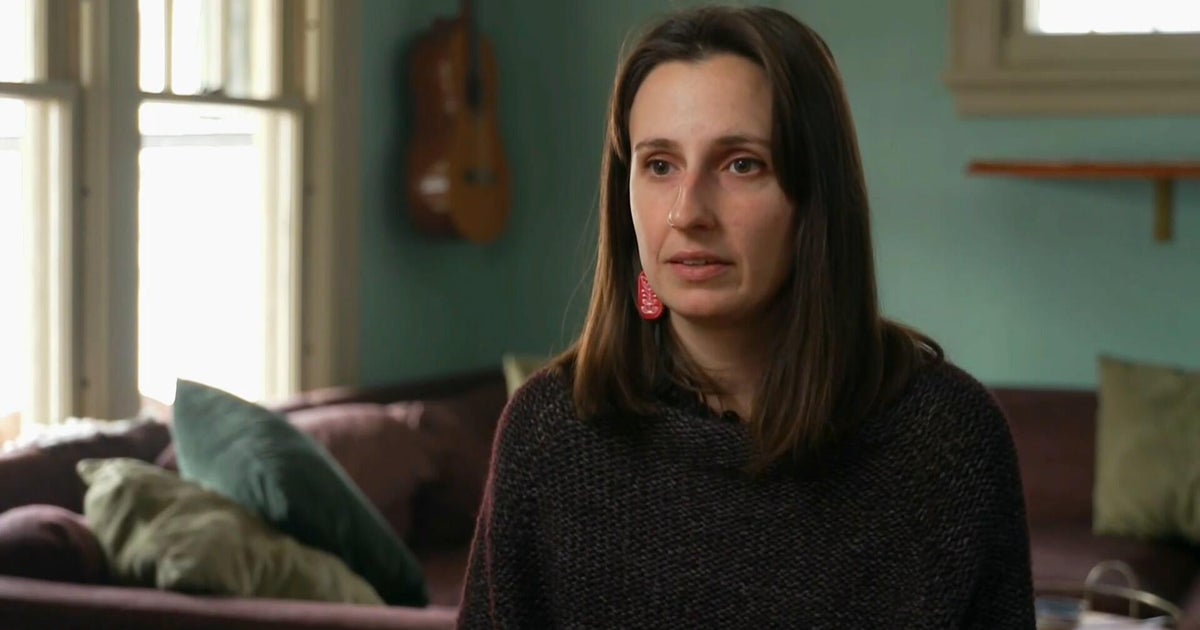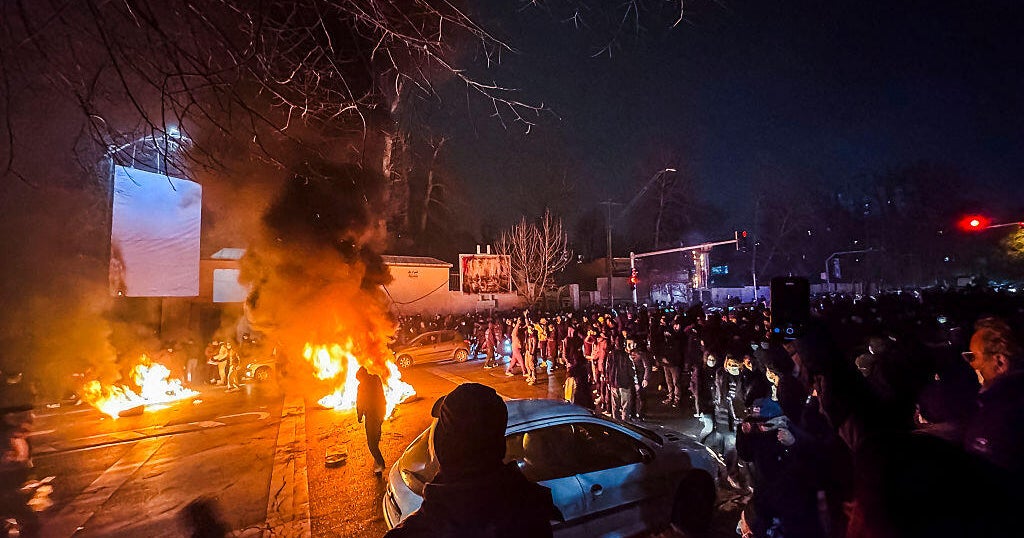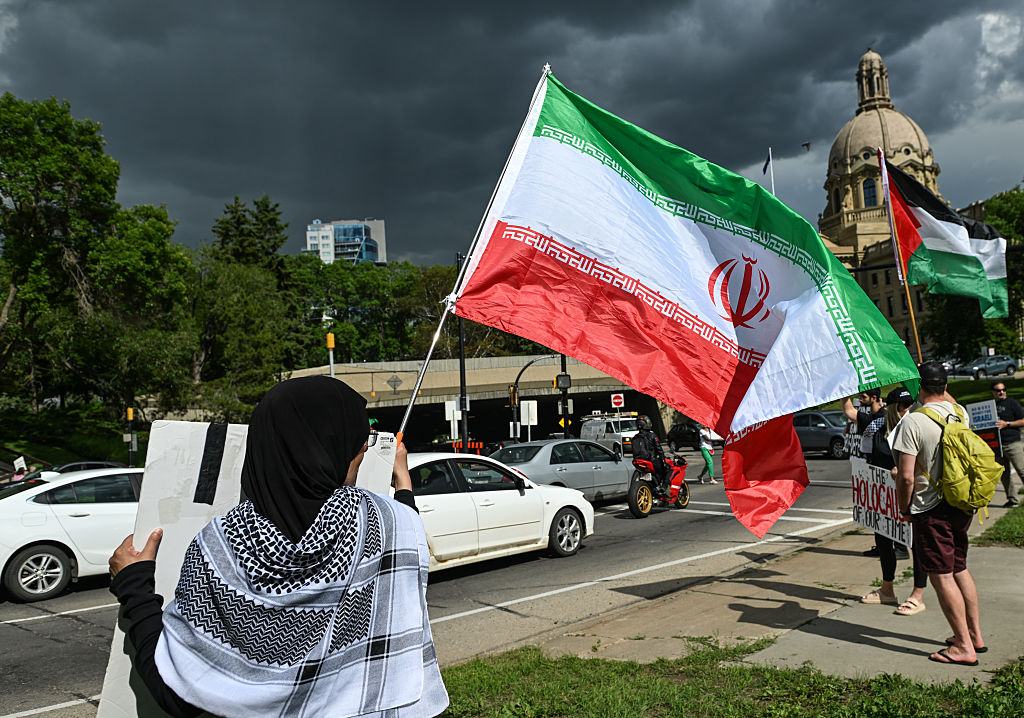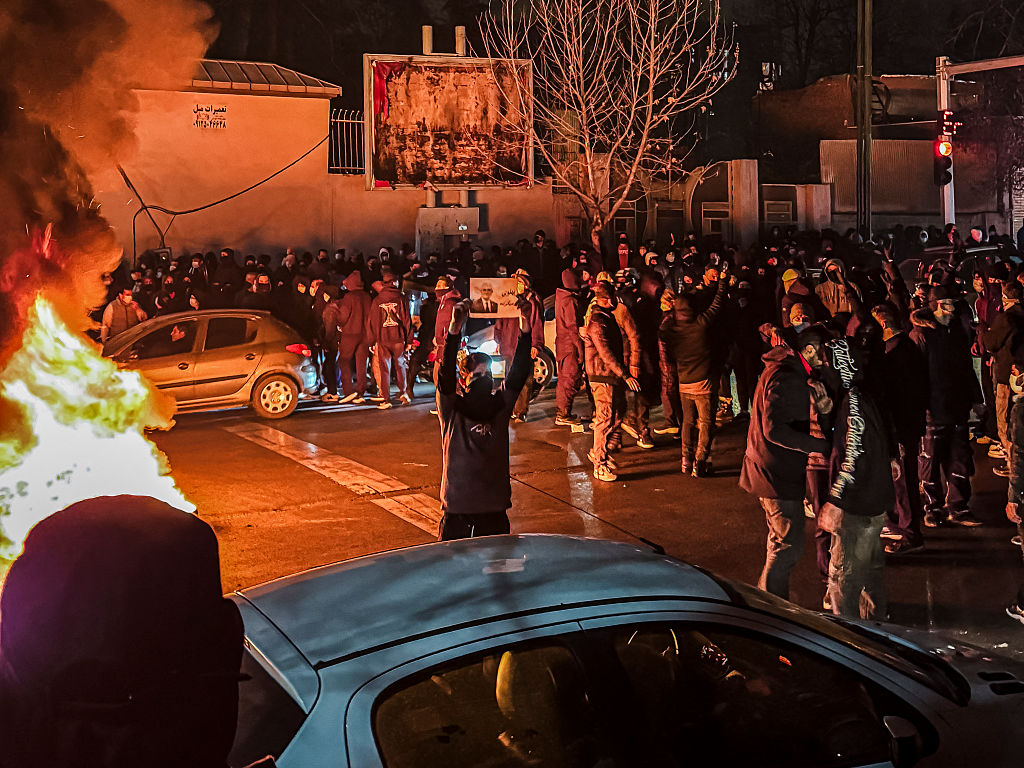Haitian gangs' gruesome murders of police spark protests as calls mount for U.S., Canada to intervene
Port-au-Prince, Haiti — Outraged rebel police officers paralyzed Port-au-Prince on Thursday, roaring through the streets on motorcycles in protest of a slew of killings of police officers by Haitian gangs. More than a hundred protesters blocked roads, shot guns into the air, and broke through gates in the capital's airport and the prime minister's house, with tensions escalating throughout the day.
Gangs have killed at least 10 officers in the past week; another is missing and one more has severe bullet wounds, according to the Haitian National Police.
Video circulating social media — likely recorded by gangs — shows the naked and bloodied bodies of six men stretched out on the dirt, their guns laying on their chests. Another video shows two masked men who are smoking cigarettes from the dismembered hands and feet of the dead men.
The gang that killed the police officers, known as Gan Grif, still has the bodies, police said.
The wave of grisly killings of police is only the latest example of escalating violence in the Caribbean nation, which has been gripped by gang wars and political chaos following the 2021 assassination of President Jovenel Moise. His unelected successor as head of the government, Prime Minister Ariel Henry, has asked the United Nations to lead a military intervention, but no country has been willing to put boots on the ground.
The U.N. estimates that 60% of Port-au-Prince is controlled by the gangs. On the streets of the capital, Haitians say it's more like 100%.
This week, the U.N. special envoy for Haiti urged the American and Canadian governments to lead an international armed force to help Haiti combat the gangs.
The U.S. Embassy in Haiti tweeted Thursday afternoon asking for calm, and U.S. Ambassador Brian Nichols, Assistant Secretary for Western Hemisphere Affairs, in a message on his own Twitter account, condemned the gang violence that left the officers dead, repeated the call for calm and extend his condolences to the families of the slain officers.
He said the U.S. would "continue to impose costs on those responsible for this heinous violence," but gave no indication of any new efforts by the U.S. or its regional partners to address it.
CBS News correspondent Pamela Falk reported that the U.S. and Mexico proposed two resolutions to the United Nations Security Council in October, one to enact an arms embargo and that would impose financial costs on Haitian gang leaders, and another to create a non-U.N. multinational force under the U.N. Charter's "use of force" provision.
To date, there has been no agreement on a multinational security force.
"Dozens of women and children as young as ten years old have been brutally raped as a tactic to spread fear and destroy the social fabric of communities under the control of rival gangs," U.N. special envoy for Haiti, Helen La Lime, told the Security Council this week. She said an estimated five million people face acute hunger in the tiny nation, which has a total population of only about 11.5 million.
CBS News' Falk said La Lime had stressed that the U.S. and Canada had not refused to send a joint security force, but that the North American nations were treading with caution over the details of how such a force might work.
"The United States continues to work to address Haiti's humanitarian crisis, as well as its insecurity and to support Haitian-led efforts to facilitate the political conditions that would lead to free and fair elections," said U.S. Alternate Representative for Special Political Affairs Ambassador Robert Wood, acknowledging that "gang-related violence has reached unprecedented levels, which has only exacerbated the ongoing humanitarian crisis and hampered the ability to address the cholera outbreak, which has disproportionately impacted children and youth."
Canada's U.N. Ambassador, Bob Rae, said it was important to remember the history of "all previous military interventions in Haiti," and he added that any new force "must be led by Haitians and by Haitian institutions."
"We cannot wait," Haiti's own Ambassador to the U.N., Antonio Rodrigue, said this week. "The security situation could worsen any day, and worsen the fate of the people who are already suffering terribly."
U.S. Customs and Border Protection agents have reported an "alarming" increase in boats full of migrants from Haiti and Cuba attempting to reach Florida in recent weeks.
Haitian police, meanwhile, are pleading for more resources.
The police deaths enraged members of Fantom 509, an armed group of current and former police officers that has violently demanded better conditions for officers.
Dozens of these men wove through Port-au-Prince on Thursday, many wearing hoods along with police uniforms, flak jackets and rifles and automatic weapons. They seized buses to blockade roads and torched tires across the city, leaving smoke plummeting through the streets.
Many demanded tougher crackdowns on the gangs, and called for the end to Henry's administration, which many Haitians view as illegitimate. Demonstrators broke down one of the gates outside Henry's home and a barrier at the Port-au-Prince airport, where he planned to make an appearance later in the day.
"We need a revolution," screamed one protester dressed in a bullet proof vest, helmet and gas mask. "We are in the streets to fight, for our brothers and sisters who are victims of the bandits. We have to take to the streets every day to get what we want."
A video recorded by local Haitian media shows empty streets and closed businesses on a key road of Port-au-Prince where the rebel group passed through.
In addition to the bodies displayed by the gang, a number of officers were killed last week in a firefight with gangs in a neighborhood that was once considered relatively safe.
Since Henry took the reins of the country, 78 police officers have been killed, according to a Thursday report by Haitian human rights group, National Network of the Defense of Human Rights.
The Haitian National Police expressed condolences to the slain officers' families and colleagues, and said it's "calling for peace and invites police officers to come together to bring forward an institutional response to the different criminal organizations that terrorize the Haitian people."
"The movement will continue, we can't let police get killed like this," said one masked man in a police uniform carrying a pistol who did not want to be identified. "We can do the job if they give us ammunition."
